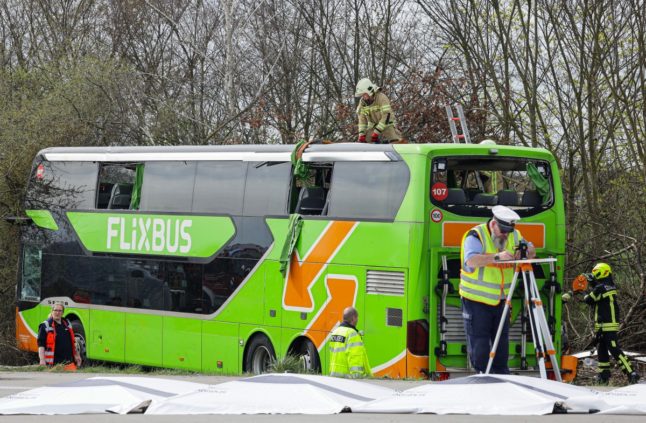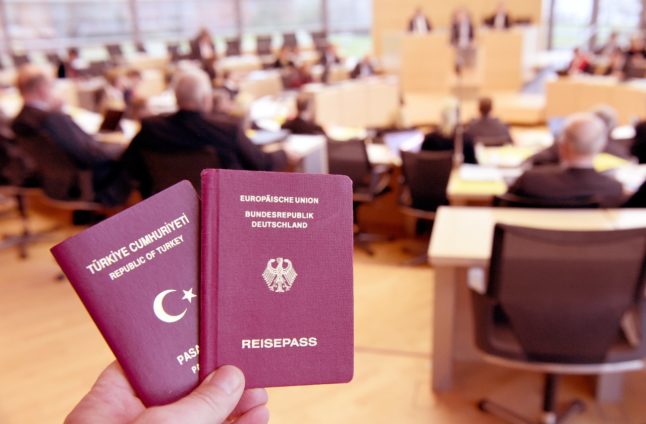The bus came off the A9 motorway in the morning between Wiedemar and the Schkeuditzer Kreuz junction.
Police had earlier announced the death of five people in the accident, but revised the toll in the evening. One person initially reported dead is in a critical condition, police said in a press statement Wednesday evening.
They said 29 passengers were slightly injured and six were in serious condition.
Emergency services attended to the injured at the scene and the motorway was closed in both directions, German authorities said. The A9 motorway is an important north-south route between Berlin and Munich.
The bus, which belonged to German travel company Flixbus, was on its way from Berlin to Zurich. There were 52 passengers and two drivers on board, the budget operator said.
“The exact circumstances of the accident are not yet known,” Flixbus said in a statement.
“We are of course working closely with the local authorities and the emergency services on site and will do everything in our power to clarify the cause of the accident quickly and completely,” it said.
The two drivers both survived, Flixbus added.
Photos showed the bus on its side, having apparently ploughed into trees on the side of the road.
There were no indications that any other vehicles were involved in the crash, according to the police.
In recent years, there have been a number of serious coach accidents. Nevertheless, buses are one of the safest means of transport comparatively. According to accident statistics, they are rarely involved in traffic accidents resulting in personal injury.
Flixbus, which runs long distance domestic and international bus services through Germany, has previously been involved in several fatal traffic accidents.
Last fall, one passenger died and 20 were injured when a bus overturned in Austria.
Another Flixbus crashed on the same stretch of motorway in May 2019. In that accident involving a bus travelling from Berlin to Munich, one person was killed and more than 60 injured, seven of them seriously.
READ ALSO: One dead and dozens injured after Flixbus overturns near Leipzig
Emergency response efforts
The bus was righted at noon with the help of harnesses, allowing emergency response persons to be able to rescue further occupants. The event was fenced off by mobile privacy screens.
Hospitals in the area prepared for a large-scale operation. The emergency room is alerted and operating rooms and diagnostic rooms are being prepared and maintained, a spokesman for the Deaconess Hospital in Leipzig told DPA.
In addition, the control centre has been informed of the capacities available for the admission of patients.
Saxony’s Transport Minister Martin Dulig expressed dismay: “My thoughts are with the relatives of the victims and injured. I would like to thank the many emergency services on site who provide quick assistance.”
German Transport Minister Volker Wissing said he was “shocked” by the accident. “Our thoughts are with the families of the victims and, of course, with all those affected, and we wish the injured a speedy recovery,” he told Welt TV.
With reporting by DPA.



 Please whitelist us to continue reading.
Please whitelist us to continue reading.
Member comments